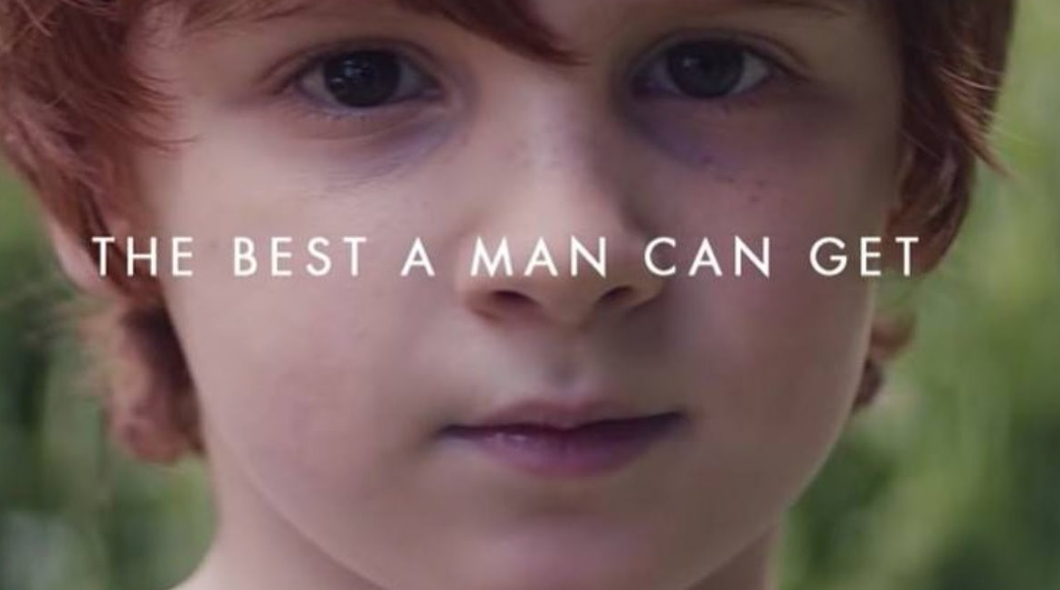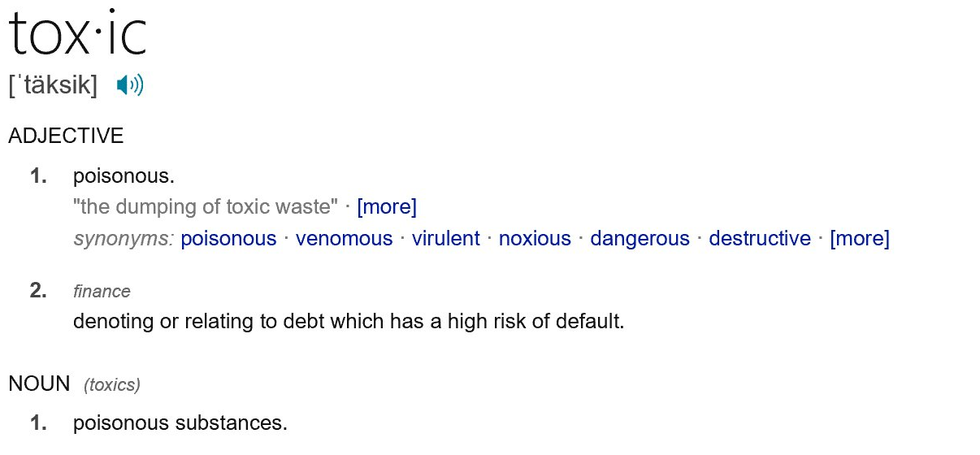Gillette recently changed their slogan from "The Best A Man Can Get," to "The Best A Man Can Be," releasing an ad pointing out the mores of a very popular topic in today's culture: "Toxic Masculinity."
We Believe: The Best Men Can Be | Gillette (Short Film)www.youtube.com
This ad was released in correspondence to the infamous #MeToo movement and has received both extreme praise and backlash.
Why it initially seems like it maybe isn't the worst commercial ever,— especially after seeing the amount of controversy it sparked— it definitely isn't the best, either.
The intention of their point is valid. The motivation of their point isn't.
Opening up with the voices of reporters speaking of sexual assault and "toxic masculinity," the narrator quickly follows with: "is this the best a man can get? Is it?"
It covers a variety of issues from bullying, sexual harassment, "mansplaining," and makes a point to condemn the saying "boys will be boys."
It further goes on to drive this point home: "men should hold men accountable."
This isn't a bad message. Men should strive to be good men who defend others against bad men.
Only, the premise of this thought is created through presenting the idea that men are inherently bad and consistently make poor choices, and they must start to teach young boys to do better.
Because current masculine influence is just not cutting it— clearly.
What this video has wrong, along with the whole, general notion of a need to "defeat toxic masculinity," is the specific idea that "toxic masculinity" is the root of all societal problems.
Aggression, violence, assertion, forcefulness, and ambition are all things that supposedly create toxic masculinity.
So, "how do we fix this?" you may ask.
Society says: "Well, it's obvious! Make men less toxic by making them less masculine. And on top of that: make them more feminine."
This viewpoint is not only incorrect, but it's even more threatening to the entirety of the "slay toxic masculinity" campaign than even the actual existence of men themselves.
See, the problem with this idealism is not only that it won't work in ridding the world of the so-called toxicity of men, but will actually create it.
Has it ever been clarified exactly what makes men toxic? As a whole? As an individual? What is it?
This approach won't be successful, and can be summed up in this statement completely:
"Bad men don't become good when they stop being men. They become good when they stop being bad."
Innate male attributes will not be immediately rid of "aggression," "ambition," or "competition," by telling boys in elementary school that they can't play dodgeball, or by giving everyone a trophy for showing up.
And at what level, do these traits become toxic?
Are these traits always bad? Always "poisonous?" Are all men inherently a disappointment to humanity? If a woman is equally competitive or aggressive as a "toxic man," would it be considered as toxicity as well? Is it gender specific?
These same "toxic" masculine traits, —that yes, do play a role in destruction and violence, which is neither a secret, nor limited to only men— are the same traits needed and used to defend countries in spite of war, provide for families in spite of greed, and take heroic risks in spite of irresponsible ones.
These traits aren't toxic, but their direction can be. That's the difference.
The use of any trait could, arguably, become "toxic," no matter it's gender relevance.
When used for good, these “unfortunate" traits plaguing men actually exceed any others.
The answer to "toxic masculinity" isn't that it needs to be replaced by femininity, it isn't to be addressed as a whole, and it isn't something to be referred to as a general problem embedded biologically in all men.
The answer to "toxic" masculinity is encouraging correct, good, and healthy masculinity, which is the exact opposite of Gillette's type of “masculine" encouragement.
Telling men they're “bad" and need to do better by becoming less like “manly men," will not counteract the non-prevelant toxicity they're trying to bring awareness to. But, it will play a major role in true toxicity's spontaneous generation in young boys who are told continuously from the start of formal schooling— at the very leas— that they aren't sensitive enough, or that they are encouraging unforeseeable violence by rough housing with their brother on the play ground.
Society's problem with men today is not that men are "too masculine;" it's that they aren't masculine enough.
When men choose to capitalize their masculinity in a way that is beneficial and effective... leaders, defenders, providers, and heroes are produced.
It's when they don't do this, that you find men who are fleeing the responsibilities required by these roles, ultimately producing men who are not necessarily rid these "toxic" traits of "ambition" or "aggression," but have merely chosen to not to use or direct those traits intentionally or productively.
These men are the ones who are stifling real masculinity and are leaving destruction in their wake, and the evidence of this is clear and apparent.
1 in 4 fathers live apart from their children.
43% of all U.S. children live without a father.
Children who grow up without a father are at far greater risk for depression, incarceration, behavior disorders, teen pregnancy, and poverty.
71 out of 100 dropouts are fatherless.
63% of all youth suicides come from fatherless homes
90% of all homeless and runaway children come from fatherless homes.
"Of all the rocks upon which we build our lives... family is the most important. And we are called to recognize and honor how critical every father is to that foundation. If we are honest with ourselves, we'll admit that too many fathers are missing from too many lives and too many homes." -- Senator Barack Obama, 2008.
The attempt to deny the societal need for true masculinity does not make it any less of a need; it simply makes it a need unfulfilled.
The desperate attempt to feminize men in the hopes of grasping some idealist, utopian equality is merely a self-fulfilling prophecy... effectively creating the only toxicity within men that we should actually be worried about: that of not being a man at all.
The need for strong men within society is not a consequence of cultural pressure. It's innate.
The creation of timid and malleable men will not stop "toxic masculinity."
Tentative, passive men don't defend, protect, provide, or stand up to stop evil.
C.S. Lewis once said: "By his intellect, man is mere spirit and by his appetite, mere animal."
Speaking on this quote, Allie Stucky said:
"We need both. Take away one, and you're left with a man who is either weak or wicked. and in a world of wickedness, weak men are nothing more than enablers of wicked men. Rape. Murder. War. They all have two things in common: bad man who do the raping, murdering and waring, and weak men who won't stop them. We need good men who will."
Masculinity isn't toxic; being a bad person is.
True and honest masculinity is being a goodman, and through good men, the idea of "toxic masculinity" cannot, will not, and does not exist.













